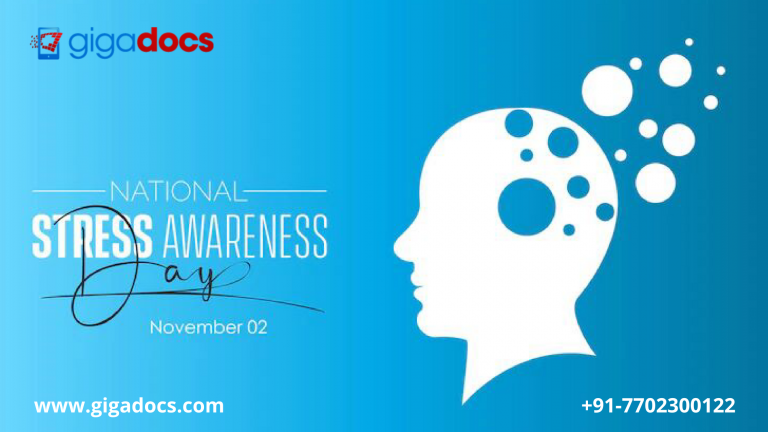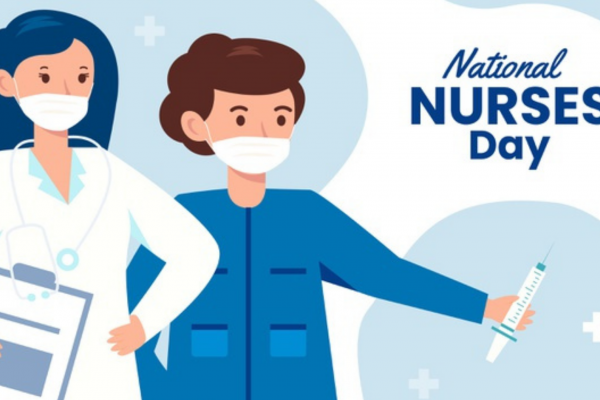Our human body faces stress and is designed to handle stress. When you face challenges (stressors), your body responds physically and mentally; this is called stress. In short, it is the normal human reaction that everyone goes through. On this National Stress Awareness Day (November 1st), let’s identify stress and how we can prevent stress through this blog-
What is Stress?
As explained, Stress responses are instant responses that assist our body in adjusting to new situations. Stress can be both good and bad, while stress can be advantageous when it keeps us alert, motivated, and prepared to avoid danger. On the other hand, stress may be an issue when it persists without relief or periods of relaxation; prolonged stress can harm your health.
Stress and its Physical Symptoms
- Muscle aches and Pains
- Chest pain or the sensation that your heart is racing
- Exhaustion or difficulty sleeping
- Headaches, dizziness, or trembling
- High Blood pressure.
- Jaw clenching or muscle tension
- Stomach or digestive issues
- Immune system weakness.
Types of Stress
- Acute Stress- Acute stress is temporary and can arise when you are in momentary stressful occasions like in traffic, in the mid of an argument, or are late for a train or flight. While Acute stress can help you deal with potentially dangerous situations, it can also occur when you try something exciting. Did you know? Acute stress is a very common form of stress, and we all experience acute stress at some other point in our lives.
- Chronic Stress- It remains for an extended period, which can be weeks or months. Chronic stress can happen when all is not going well with one’s family, work, or financial requirements. When you are under chronic stress, your body is on high alert even though things are normal, which might put them at risk for diabetes, obesity, heart disease, hypertension, depression, anxiety, skin problems (such as acne or eczema), and even menstrual problems. Chronic stress can lead to unhealthy behaviors such as gambling, overeating, or developing an eating disorder, excessive or frequent alcohol consumption, drug use, impulsive shopping or internet browsing, and smoking.
Emotional and Mental Symptoms of Stress
- Stress Can Trigger Mental Health Problems- Stress can even cause mental health problems to worsen; depression and anxiety are common occurrences if you get stressed. PTSD (post-traumatic stress disorder) is also generally faced by people who have handled stress.
- Mental Health Problems Can Cause Stress- Facing the day-to-day symptoms of one’s mental health problem can be stressful. This may include concerns about keeping track of medical appointments, medication, and other treatments.
Effective Tips to Relieve Stress
- Getting exercise or going for a short walk will uplift your mood.
- Take a moment to reflect on what you’ve accomplished rather than what you haven’t.
- Set daily, weekly, and monthly objectives. Narrowing your focus will make you feel more in control of short-term and long-term tasks.
- Consider discussing your concerns with a therapist or your healthcare provider.
What are some ways to Prevent Stress?
Many daily strategies can help you manage stress:
- Recognize that you cannot control everything. Find ways to let go of anxiety about things you can’t change.
- When too busy or stressed, learn to say “no” to additional responsibilities.
- Maintain a positive attitude and practice gratitude, recognizing your day’s or life’s positive aspects.
- Maintain contact with people who keep you calm, make you happy, offer emotional support, and assist you with practical matters.
- Meditation, yoga, breathing exercises, and muscle relaxation are good ways to unwind.
- Every day, take good care of your body. Eating well, exercising regularly, and getting enough sleep help your body cope with stress much better.
Diagnosis of Stress
Stress can be difficult to diagnose because it depends on many factors. Doctors have identified stress using questionnaires, biochemical measurements, and physiological techniques. These, however, may not be objective or effective. A comprehensive, stress-oriented, face-to-face interview is the most direct way to diagnose stress and its effects on a person.
Stress Treatment
Self-help and, when an underlying condition is causing stress, certain medications are used in treatment. Unless they treat an underlying illness, such as depression or an anxiety disorder, doctors will not usually prescribe medications for stress management.
In such cases, an antidepressant may be prescribed. However, there is a risk that the medication will only mask the person’s stress rather than help them deal with it. We at Gigadocs advise you not to take OTC (over-the-counter) medicines for your stress; instead, book an appointment with specialist doctors around you on the Gigadocs app.
Book your appointment with experienced psychiatrists and mental health specialists on the Gigadocs app. To download-
- IOS App – apple.co/2W2iG4V
- Android App – bit.ly/33AQoR




